The Terror Of Euro Television
by Aleksander Chan
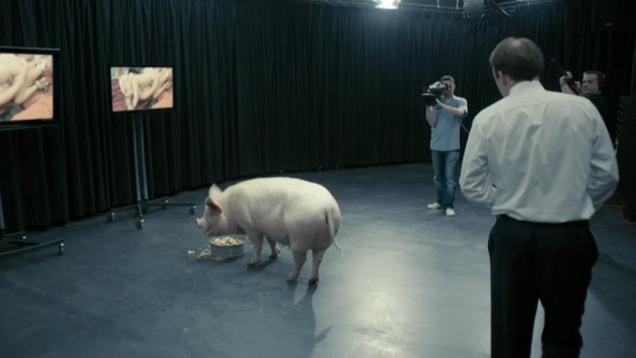
If you are ever in the spoiled, lucky position to watch television for a living, it would be wise to avoid tabulating the length and frequency in which you spend in front of the TV, your mouth agape, crumbs speckled along the edges of your shirt collar, your head pliable as a block of left out cheese. There is no accounting of this time without courting depression. Save those feelings of regret and inadequacy (I could have been doing so much more with my time! you lie to yourself) for when your cable bill — which is still $200, still a complete a shock after all these years — arrives in your inbox. But if I were to taxonomize my year in TV watching, what would immediately stand out is the amount of time I spent watching international death dramas. Or rather, how I watched them: through the cracks of my fingers or obscured by a pillow or sometimes without even looking at the screen, my eyes often welled with tears.
2013 was a banner year for international series. Many of them were English, but there were shows from France and New Zealand, too. Most of these buzzy and talked about shows — specifically Broadchurch, The Fall, The Returned, Top of the Lake, and Black Mirror — centered on chilling conceits: murder, death, violence. This was the year of television that instilled in me an irrational fear that foreigners might try and kill me. Yes, Americans have been killing each other on TV for decades now: Three separate Top 20 Nielsen franchises (Law & Order, CSI, NCIS) were built upon the premise of gruff leading men (and Mariska Hargitay) trading pithy back-and-forths with leggy co-stars while solving the grisly, grossly sexualized murders of coeds, scorned lovers, and unfortunate secondaries. But where 2013’s crop of imported death dramas stand out is that their killers felt like people I do or could or have known: The handsy boss. Your best friend’s husband. Your dweeby co-worker. Your grief counselor. But also because these shows divert our focus away from the acts of violence and the stack of dead bodies and make us look closer at the bleaker, headier horrors of human nature. To show us the misery of dread and the suffering of living, the ways guilt wears us down and make us cold. Facing the permutations of this psycho-emotional shakedown felt more draining, grueling, and terrifying than the hunt of their killers.
First we got the American adaption of Danish series Forbrydelsen, AMC’s perpetually cancelled and resurrected — and all too fitting given its title — The Killing. At first, the story of Rosie Larsen’s murder and the moody, no-bullshit detectives tracking her killer, was promising. That lurching, devastating moment when Rosie’s parents get the call that she’d gone missing, of Michelle Forbes falling to the floor in a mother’s agony, felt like echoes of Grace Zabriskie getting that same call in Twin Peaks. But it dragged, prolonging the killer’s reveal and confusing rain and grey skies with emotion. (FX’s The Bridge, yet another adaption of a Nordic series, bored me.)
This year, the one-case-a-season approach earned its stripes by tightening their storytelling. Part of why these international dramas worked is their serialized but still contained nature — unlike network procedurals, they aren’t trying to churn out 22 42-minute episodes of close-ended crime solving a season. (And that’s mostly because of the nature of foreign television production models, which are much smaller than they are in the U.S. and are often government-funded.) American cable dramas typically run 12 to 13 episodes a season, which can still feel bloated (I see you, Homeland), but I think these international shows, which tell singular narratives across eight or so episodes, figured out just the right amount of space to tell these stories — they’re tighter, punching hard and fast.
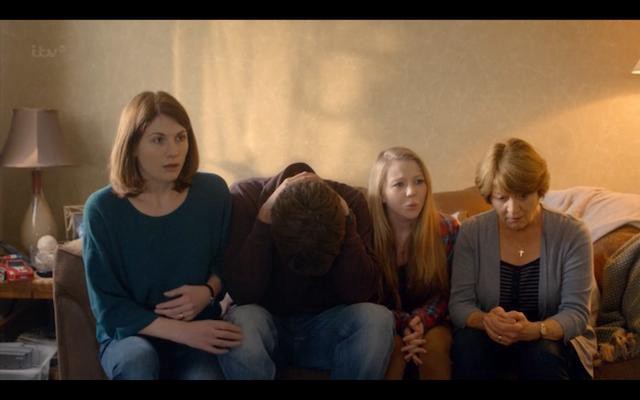
To wit, the most painful 20 minutes of the U.K.’s Broadchurch wasn’t when they finally caught the killer of an 11-year-old boy who lived in an idyllic seaside town. It was watching the killer’s son being told the truth about his father; the boy’s family finally being informed by David Tennant’s detective that their good friend and neighbor killed their son. It wasn’t ghoulish. It didn’t at all feel like an easy, manipulated emotional moment. It just felt fucking awful. They were spare, almost quiet moments of overwhelming grief, of you watching these families faces slowly crumble into tears. Broadchurch and these other prestige international dramas this year, in different forms, considered the ugly idea that knowing that someone you love could be that terrible, could betray you so cruelly, can feel worse than their crimes. American murder dramas seem glib by comparison.

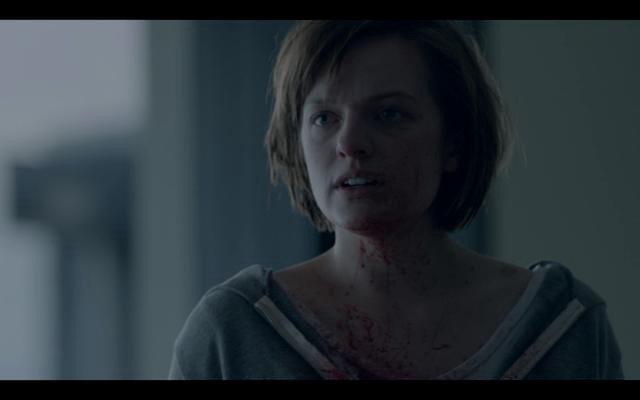
The one most people heard about was Jane Campion’s Top of the Lake, a buggy, Lynchian freakout set in New Zealand (and co-produced by BBC Two). A young, gung-ho detective, Robin (Elisabeth Moss), who left years earlier following a horrific attack on her way home from a school dance, is trying to figure out what happened to young Tui Mitcham, who goes missing after submerging herself, possessed J-horror villain style, into a lake. Before she goes missing, it’s discovered that Tui is pregnant and when questioned about who the father was, she tells Robin, disquietingly, “No one.” But it turns out Tui’s mystery and Robin’s repressed trauma are inextricably linked: Robin was raped by a gang of thugs when she was a teenager. And she’s horrified to learn — years later and after carrying a baby that resulted from her rape to term — that her old flame (and Tui’s half-brother), who she has now rekindled a romance with, and who was there at the time of Robin’s rape, didn’t do anything to stop it when he had the chance. He froze up and let it happen.
The series takes a rough edge to institutionalized gender politics and attempts to unpack the ways in which we cast blame. Women in Top of the Lake are victims, targets, and enemies; men are monsters, fiends, or creeps. The implications of Robin solving this case are huge, because they challenge the system of patriarchy, of unchecked authority and quiet complicity, that forces men and women into those roles, and that allowed for the crimes committed against her and Tui to have happened in the public eye without consequence. It’s an indictment of how we turn blind eyes to terrible things happening right in front of us. It’s scary and unsettling and Top of the Lake, with its roving camerawork of the bucolic New Zealand hills, makes you feel its bristle all around you. It’s like Jane Campion walking up, slapping us in the face, and asking, “Do you see it?” with an appropriate jolt.

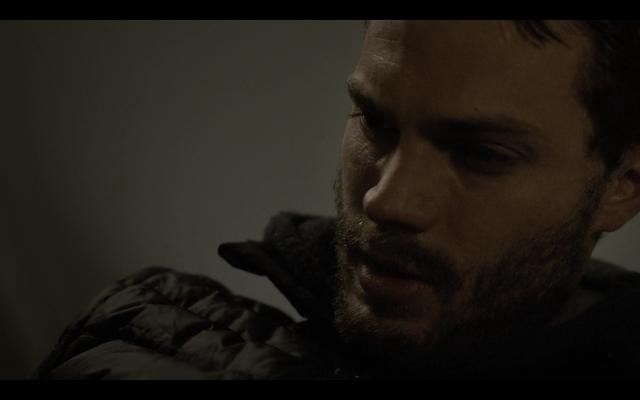
Set in Belfast, Ireland, The Fall is closest to what we’re already used to with serial killer dramas. The show follows murderer Paul Spector (Jamie Dornan, former model and future Christian Grey) and the police officer tracking him, the blithe and brilliant Stella Gibson (Gillian Anderson, who still kicks ass). Paul is targeting young, upwardly mobile professional women; he slinks in through their windows, his face covered like it would with a ski mask, and strangles them. Strangulation! No fancy trap to be laid, no bizarre ritual to adhere to or pentagrams to draw — just old-fashioned murder-by-bare-hands. It’s scarier to be reminded that we posses the sheer force of will and animus to kill each other without any superpowers or machines.
But where the show was most successful, other than fostering an incredible sense of fear (lock your doors!), was how it forces you — through meeting his family and seeing how him and his hardworking wife struggle to keep their spark — to sympathize with him. So that when he’s killing victims, there’s layers of misery: for the woman being strangled to death, screaming in abject terror; for Paul, who you wish with all your might would stop; and the dark, icky feeling you have for emotionally standing on the side of a killer. There are obvious parallels to Dexter, but where I think The Fall has an edge over Michael C. Hall and his endless hardboiled narration is that Paul’s crisis feels decidedly more quotidian — Dexter was such a pro, his emotional center guarded by an impregnable fortress. (Which I know was the point, but I stopped caring when the show went about slowly breaking down those walls.) Watching The Fall is to experience the macabre internal nightmare of a killer, which feels perilously similar to someone who isn’t.

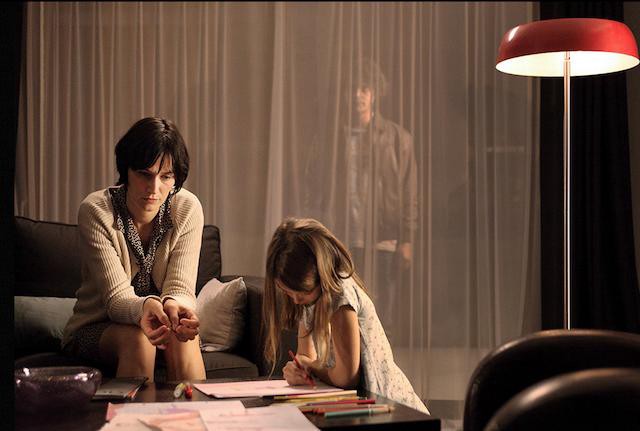
France’s The Returned and the British, Twilight Zone-esque Black Mirror are not directly about killers, per se, but they are obsessed with death and the emotional margins surrounding it. The Returned is a pseudo-zombie thriller, but not like The Walking Dead — the people who have come back to life aren’t trying eat anyone. (OK, one of the returned is a serial killer and there are weird, supernatural elements in play, but the series’ emotional undercurrents operate irrespective of that fact.) In fact, they appear perfectly normal and very much alive, years after they died. Ignorant of what happened to them, the series follows them as they try to reintegrate themselves into the lives they don’t remember ending. The Returned, and especially Black Mirror, play with the dark side of wish-fulfillment: How does your deceased loved ones suddenly coming back to life affect your ability to grieve, to finally move on? Their return also reignites the fear that you’ll lose them all over again, perhaps weighing twice as heavy on your heart than the first time you lost them.
All this to say, I really want you to watch Black Mirror. It’s hard to find stateside (it aired on the DirecTV-only Audience Network), but if you can get a hold of the show’s six episodes, you’ll be floored by how it takes ideas like those in Dave Eggers’ The Circle to truly horrifying, devastating places. I was a wreck after every episode. A collection of closed-ended episodes about the way we live now (so, huddling and clacking away behind screens), each takes place in a future where technology has made logical, obvious advancements; you could envision them today and nobody would bat a lash. In fact, they’ve probably already been cooked up in the brain of a future billionaire or sketched out on a Silicon Valley whiteboard of a startup desperate to “disrupt” something (mostly themselves): advanced computer systems that we can embed in the sides of our necks that record everything we see and hear, to be played back on the device of our choosing, including our own eyes; a world in which literally every action is quantified (and gamified), where brushing your teeth costs “merit points.”
In these visions of the future, we’re doing a fine job of using the technology — the apps and the devices we made to make our lives easier — to live in unbearable misery: in the first episode of the second season, “Be Right Back,” a young artist’s husband, distracted by his phone, dies in a car crash. Stewing in grief, the widow impulsively purchases the service of a company that allows her to “speak” with her dead husband by scanning his social media profiles, personal data, photos, and audio clips and algorithmically regurgitating his likeness. (So, a souped-up Twitter bot.) Just as in The Returned, the woman’s “resurrected” husband is a prison she’ll never escape, never finish serving time. Eventually, in a grim turn for an already depressing allegory about the corporate profiteering of bereavement, she’s able to purchase, implied to be for an amount she can’t afford, a robotic replica of her dead husband, made lifelike by an advancement that allows scientists to grow synthetic human skin. When we caution to others that we should be careful about what we do or say online, we say so because what happens on the internet “lives forever.” Black Mirror posits: If we put enough of ourselves online, can we live forever? And do we want to?
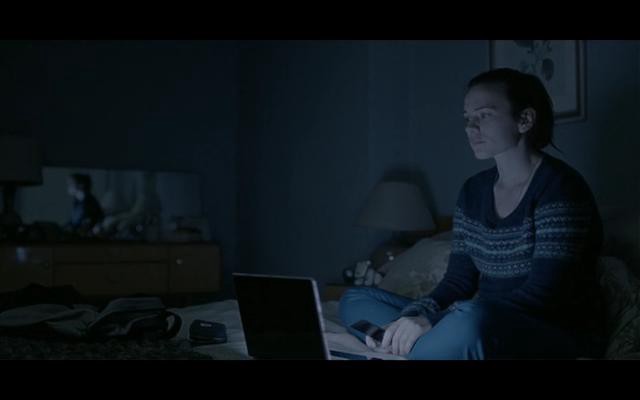

American networks, faced with cratering ratings (which really may be more of a matter of figuring out a better way to measure ratings, given all the ways we watch TV now), Netflix, and competition from cable, and inspired by international series, are catching on to the idea of limited-run seasons (or just trying to make American versions of those shows). They keep calling them “event series,” which is dumb, but seems to be working: their smaller episode orders, and therefore more flexible shooting schedules, have drawn bigger stars like Kevin Bacon, Toni Collette, and Halle Berry. Fox is even shooting an American version of Broadchurch to air next season that will also star David Tennant (which also seems dumb, but at least they’re trying?) and Breaking Bad’s Anna Gunn. I’m all for these eventual “event series” if it finally leads to the dismantling of the archaic, useless 22-episode network TV production model. (Sorry, we don’t need 22 episodes of Scandal. We don’t need 22 episodes of one season of any show.) Because what made the international shows I watched this year feel so powerful was their economy. Each season (excuse me, “series”) felt complete. And though I wouldn’t say no to more of any of them, I’m happy with what I’ve already been given. Less is more.
Aleksander Chan is a writer and editor in Austin.
